9 Plants That Will Keep Squirrels Out of Your Garden for Good
Squirrels may look harmless while darting across the fence or posing on a tree branch, but once they find your garden, all bets are off. Luckily, some plants naturally send squirrels packing without the need for traps or chemicals. These selections are loved by gardeners and disliked by rodents.
Alliums
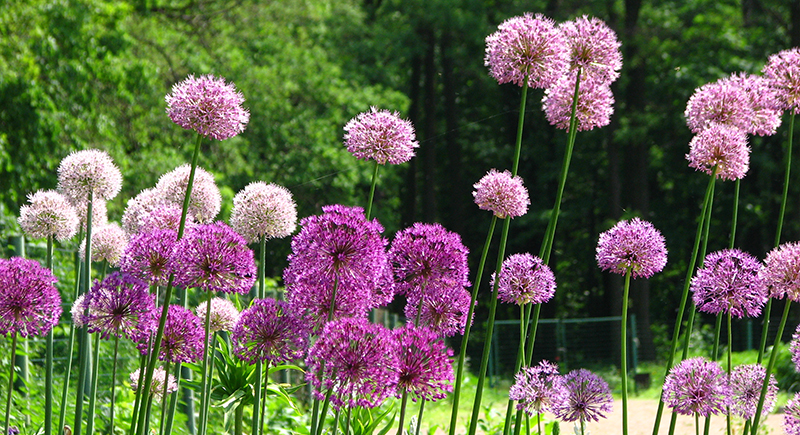
Credit: Wikimedia Commons
Ornamental onions’ towering stems and purple pom-pom blooms give off a scent that squirrels would rather not sniff. They’re also drought-tolerant and deer-resistant, so you get a low-effort, high-impact addition to any garden bed.
Marigolds
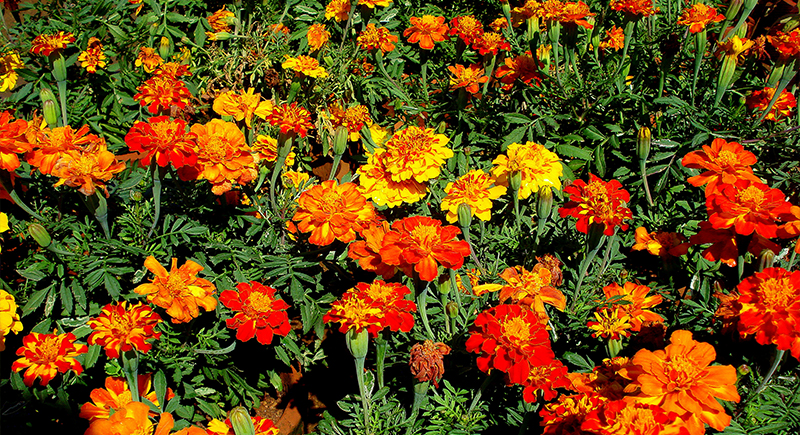
Credit: Wikimedia Commons
You’d think their bold colors would be an invitation, but marigolds turn squirrels off fast. That signature musky scent is a natural deterrent. Plant them near veggies, in containers, or tucked between flowers. They thrive just about anywhere and keep bugs away. French or African varieties both get the job done.
Peppermint

Credit: Wikimedia Commons
What smells like a holiday treat to you smells like a disaster to a squirrel. Peppermint’s strong menthol scent messes with their sense of smell. It grows like crazy, so plant it in containers. Dried leaves also work wonders when sprinkled around trouble zones.
Daffodils
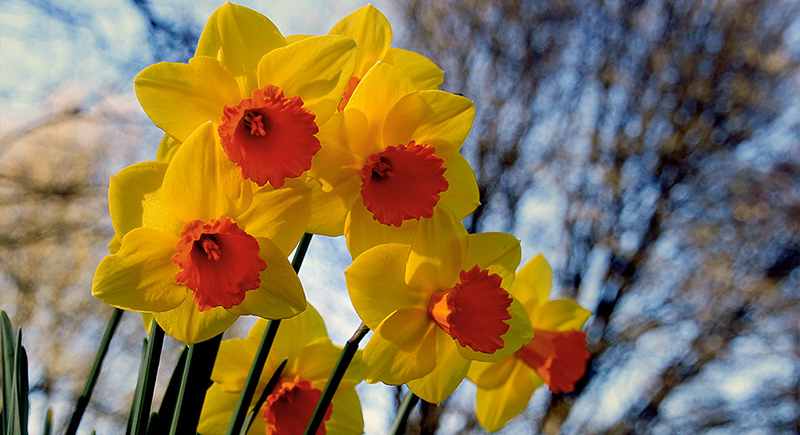
Credit: flickr
These sunny spring classics are toxic to squirrels. The bulb, in particular, contains lycorine, a chemical that tastes awful and can make small animals sick. That’s reason enough for squirrels to steer clear. They also multiply naturally, so next year’s defense may become stronger without extra effort.
Hyacinths
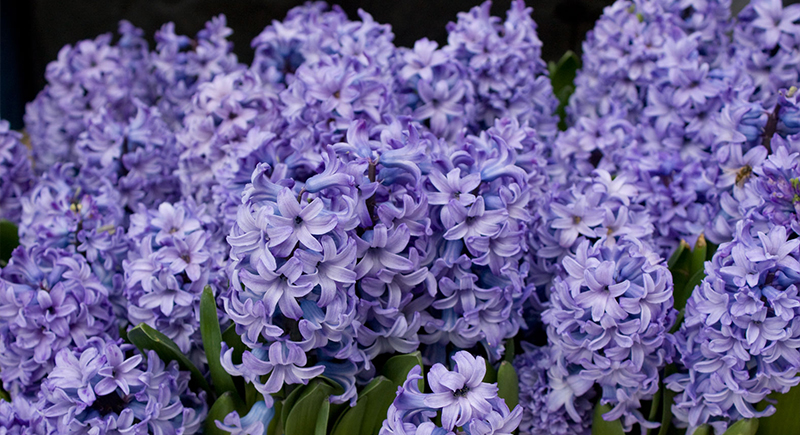
Credit: Wikimedia Commons
Hyacinths look delicate, but they’re secretly tough when it comes to pest control. These spring bloomers come in a range of pastel shades and give off a scent that lingers. They pair well with other bulbs like daffodils and can help squirrel-proof early-season garden displays.
Garlic

Credit: flickr
The strong sulfur compounds in its leaves and bulbs make squirrels second-guess their approach. It’s best planted in fall for a summer harvest, and even the flowering stalks help repel pests.
Lily Of The Valley
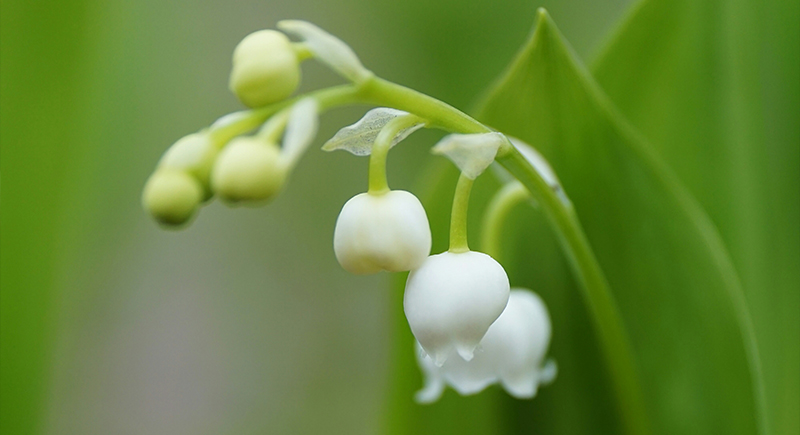
Credit: Wikimedia Commons
This elegant groundcover has a secret weapon: its sweet-smelling blooms and rhizome roots don’t appeal to squirrels. In fact, many find the scent unpleasant and stay away. It prefers partial to full shade and will slowly spread if left undisturbed.
Rosemary

Credit: Wikimedia Commons
A culinary staple that also plays defense, rosemary gives off a woody, camphor-like smell that squirrels can’t stand. It grows in containers or straight in the soil, provided the spot gets sun and drains well. Hardy and low-maintenance, rosemary adds texture to herb gardens and doubles as a deterrent.
Nasturtiums
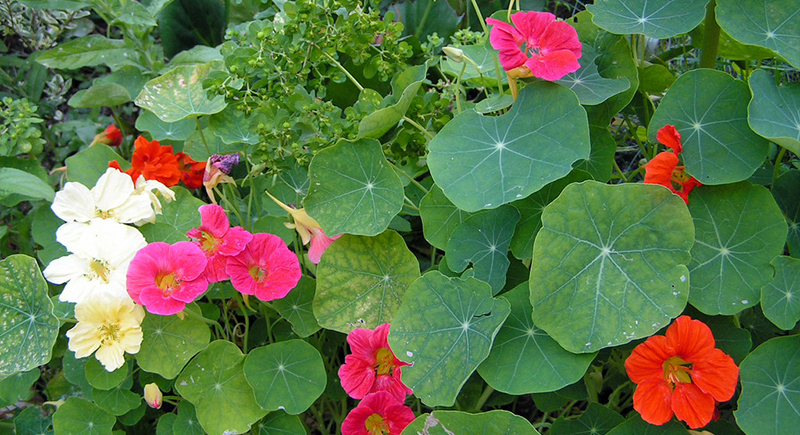
Credit: flickr
These colorful annuals bloom in cheerful reds, oranges, and yellows, but their strong, peppery scent is a turnoff for squirrels. They’re easy to start from seed and work well in containers or tucked between vegetables. The leaves and flowers also have a spicy flavor that adds a punch to summer salads.
Geraniums
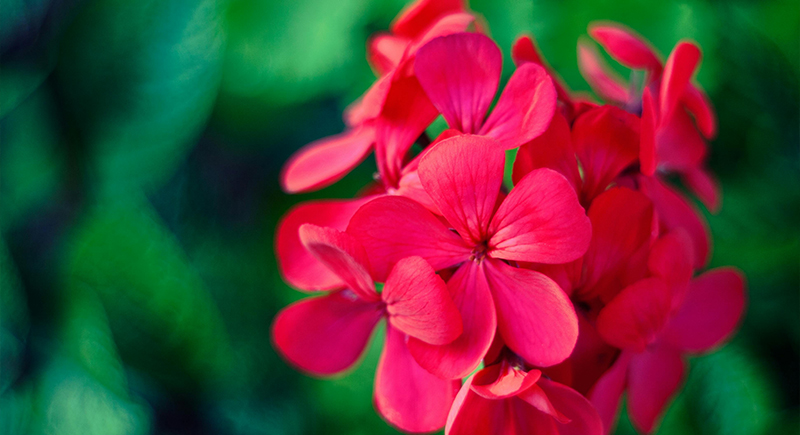
Credit: pexels
The combo of fuzzy stems and a sharp, citrusy scent does the trick. These flowering plants bloom from spring into fall and thrive in containers, window boxes, or sunny flower beds. They’re also known to repel some insects, giving them extra value as multi-tasking garden guards.
Lavender

Credit: Wikimedia Commons
Lavender’s potent floral fragrance keeps them away, especially when planted in borders or near vulnerable crops. It needs full sun and well-drained soil, but rewards you with long-lasting blooms and a calming scent. Dried lavender sachets can also be placed around sheds or planters for extended coverage.
Chives
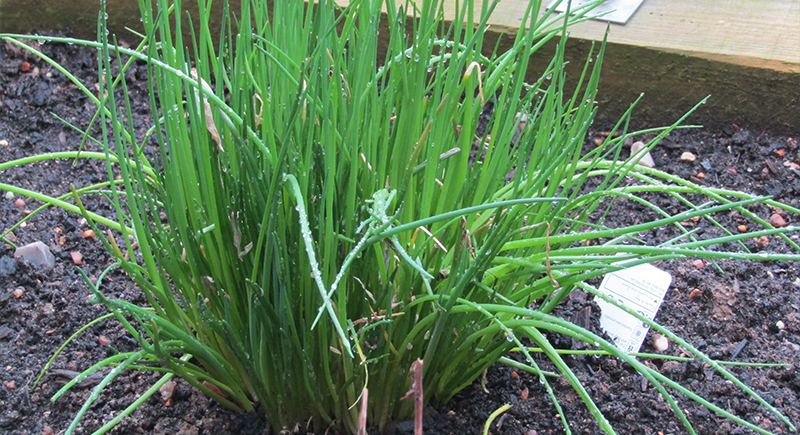
Credit: Wikimedia Commons
Related to onions and garlic, chives carry that same sulfurous smell that squirrels try to avoid. They’re small, hardy, and easy to tuck into almost any sunny garden bed. The bonus? Their purple blossoms are edible and attract bees.
Sage

Credit: Wikimedia Commons
Sage combines a strong scent with soft leaves: two things squirrels dislike. This drought-resistant herb fits right in alongside rosemary and thyme, which form a low-growing and high-functioning squirrel barrier. It also adds a silvery hue to your garden and a savory note to your kitchen dishes.
Hot Peppers
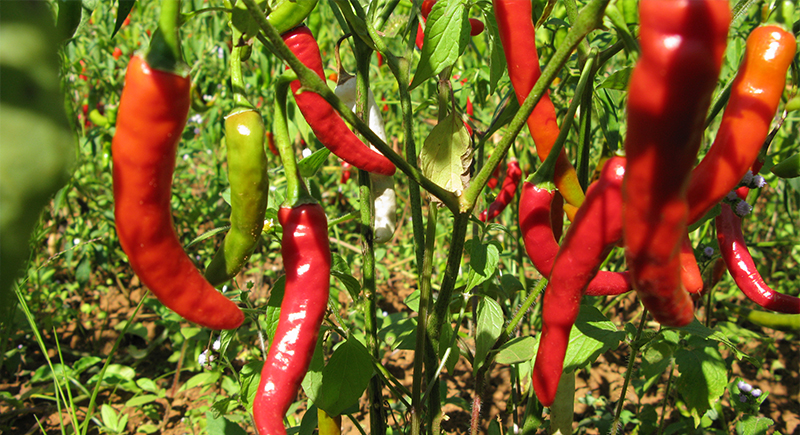
Credit: Wikimedia Commons
Capsaicin, the compound that gives peppers their heat, is squirrel kryptonite. Many repellents rely on it, but you can just grow the source. Plant hot peppers like cayenne or jalapeño around your garden’s high-traffic zones. Even ornamental types pack enough punch to turn squirrels away. Just wear gloves when handling them.
Oregano

Credit: pexels
It might be a kitchen favorite, but squirrels don’t appreciate oregano’s intense scent. This low-growing herb thrives in the sun, handles heat well, and offers another layer of protection for plants nearby. Add it to raised beds or containers near the edge of your garden.